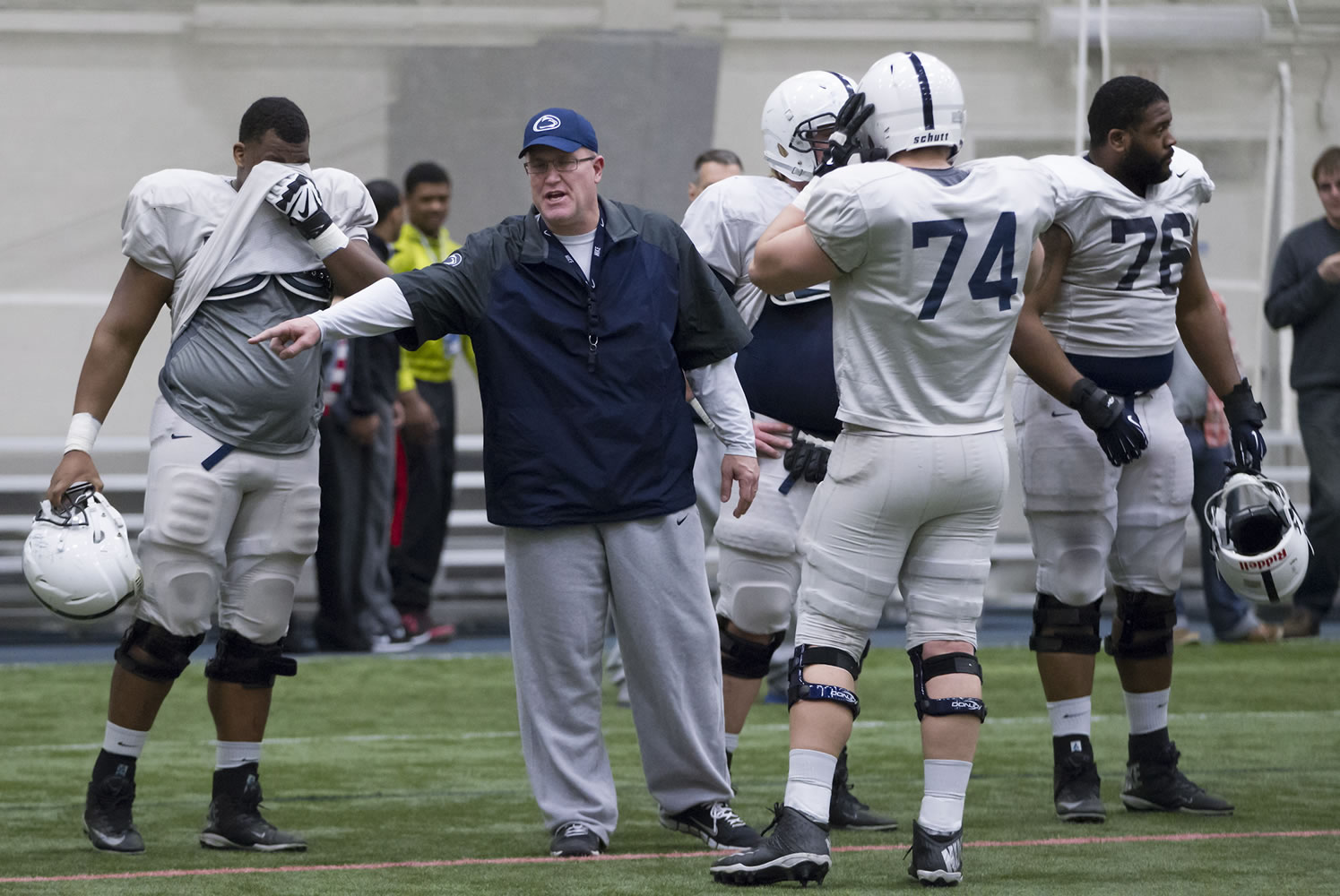At St. Paul’s Episcopal School in Mobile, Ala., the high school that produced Crimson Tide quarterbacks AJ McCarron and Jake Coker, there’s a new preseason ritual for football players: the social media talk.
It’s about more than minding their manners. Coach Steve Mask warns players not to post about injuries, which can scare away recruiters. Committing on Twitter to a school is also discouraged — one recent former player tweeted commitments to four different schools without informing any coaches.
“He came across as being not reliable,” Mask said.
This season, Mask is taking his players’ online personas so seriously that he’s assigning an assistant to monitor their accounts. As college programs increasingly use Twitter, Instagram and other social media accounts to evaluate a player’s character, one wrong comment can cost a scholarship offer.
That was the case recently at Penn State for offensive line coach Herb Hand, who took to Twitter recently to vent his frustration with a recruit gone bad online.
“Dropped another prospect this AM due to his social media presence. … Actually glad I got to see the ‘real’ person before we offered him,” Hand tweeted.
Yes, teens do tweet the darndest things, but Hand and other coaches say it’s usually fairly easy to differentiate between a cringe-inducing post and one that raises a serious red flag on a prospect.
“There’s a difference though when you’re talking about information that may be degrading to women, referencing drug use, and anything that has to do with cyberbullying and stuff like that. There’s certain things you don’t want to be part of your program,” Hand said.
Hand, who is one of the most active and engaging college coaches you’ll find on Twitter, is not alone in cutting off a recruit because of the player’s use of social media.
“It’s happened this year and this recruiting class,” Duke coach David Cutcliffe said. “It’s just insane what some of them think’s OK. When I know it’s them and I read it and I see some of the things out there, if I’m on the road, I’ll call a coach — let his high school coach know we’re no longer interested. And I’ll call back to (Duke director of football relations) Kent McLeod or the people in the office and say I want him dropped off the database. No more mail. Nothing.”
“In the transition from being a little kid to a man, that’s the thing you have to do, because when you’re growing up, you probably want to get a big-time job somewhere and they look back at your Twitter account and they see the things you’re putting out,” Lammons said.



